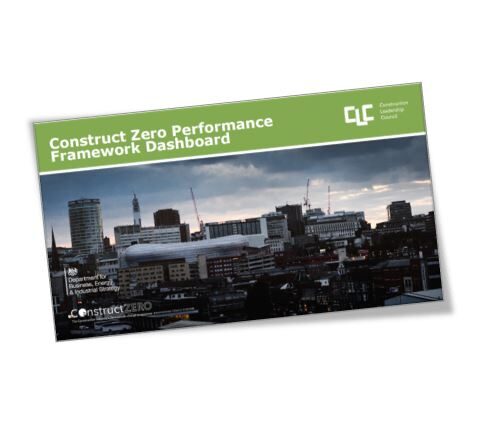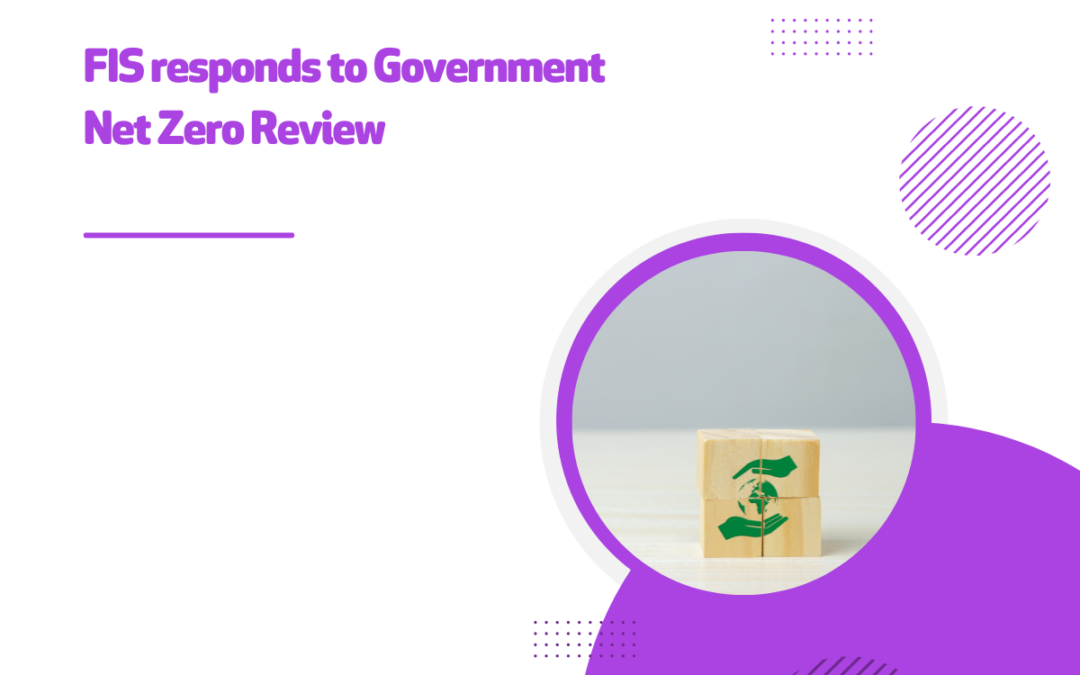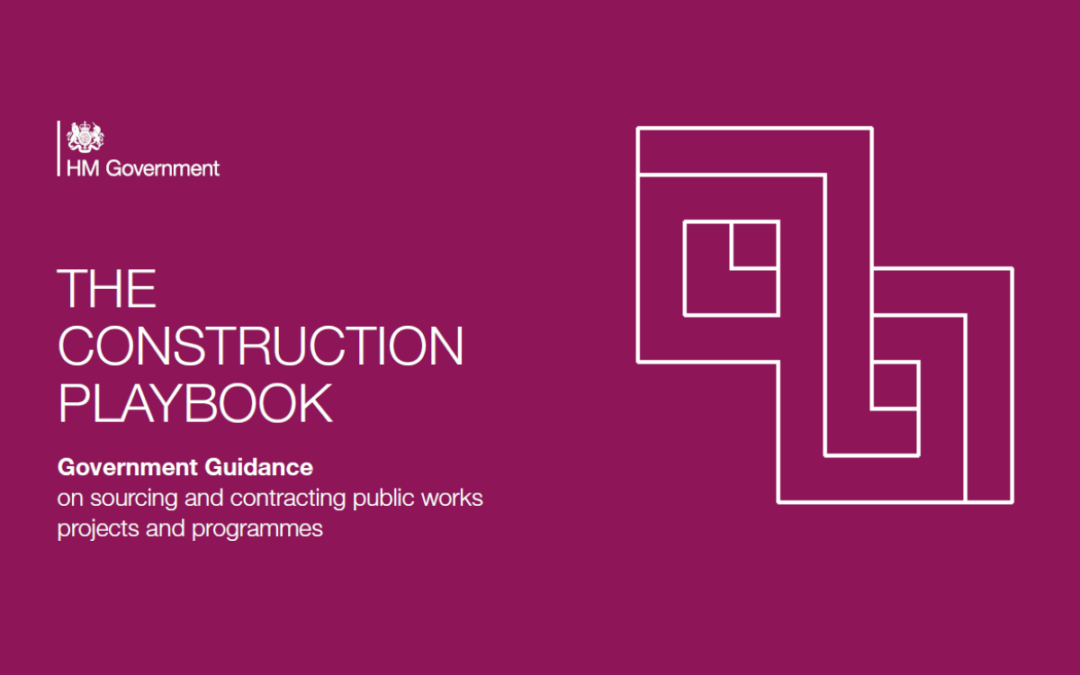
by Clair Mooney | Dec 16, 2022 | Sustainability
We are delighted to commend to you the first in a new series of newsletters from the Link Consortium. The Link Consortium brings together experts in building materials reuse (including FIS) looking at how the sector can adopt latest artificial intelligence and object recognition technology to provide rapid listing software to help increase reuse of used construction materials and significantly reduce carbon emissions.
This project, funded by InnovateUK, was launched in October 2022.

by Clair Mooney | Nov 29, 2022 | Sustainability
The construction sector has taken a number of significant steps towards net zero according to data published today. At COP26 last year, the Construction Leadership Council launched its CO2nstruct Zero programme, with associated measures to track carbon reduction activities, and challenge the industry to improve in nine key areas.
The first annual review of progress sets out the evidence that UK construction is playing a leading role in cutting carbon.
The annual CO2nstruct Zero Performance Dashboard shows that the last 12 months has seen the sector:
• Train more than 500 retrofit co-ordinators, with associated business accreditation
• Connect 55,000 heat pumps by 4,100 trained & registered installers
• Deliver a 33 per cent increase in EV charging points
• Include carbon literacy in professional qualifications
Alongside these targeted measures, the CO2nstruct Zero network has grown rapidly, with more than 200 organisations now established as Business Champions and Partners under the programme. This network has played a crucial role in supporting carbon reduction policy development, feeding into UK Government work on retrofit and energy security, as well as developing its own detailed plans including a route map to cut diesel usage on sites.
Flavie Lowres, FIS Sustainability Champion said:
It was great to attend the CLC meeting to see the positive steps that are being made and the enthusiasm for change. The opportunity for the FIS members is great, but we do need to be cautious that this isn’t another false green dawn and that we see the principles cascade through to the work on the ground. We need strong collaboration to set the supply chain up to succeed. This came out strongly in the discussion as we focus on making sustainability a habit linked to effective procurement, productivity and resource management.
Construction Leadership Council Co-Chair and Construction Minister Nusrat Ghani MP said:
“We have decarbonised our economy faster than any country in the G20 and remain fully committed to supporting the construction industry in achieving its decarbonisation commitments through initiatives like Construct Zero.
“This report demonstrates the positive start our construction industry is making in the fight against climate change. I look forward to working with the CLC to accelerate progress in the years to come.”
Construction Leadership Council Deputy Co-Chair Richard Robinson said:
“Last year we asked the industry to join us on a journey towards a lower carbon future, and the response has been very encouraging”.
“We must now build on this momentum, pushing ahead with pace and purpose in 2023 as we continue to play a leading role in getting the UK to net zero.”

by Clair Mooney | Nov 17, 2022 | Sustainability
SMEs can get grants from the Office for Zero Emission Vehicles to install electric vehicle charging infrastructure in their commercial car parks.
Eligible businesses can claim £350 for each chargepoint socket installed and £500 per parking space enabled with supporting infrastructure, up to a maximum of £15,000 per car park.

by Clair Mooney | Nov 1, 2022 | Sustainability
FIS has worked with its members to respond to the Government’s call for evidence on net zero. The Government has commissioned a review on the Government’s approach to delivering net zero to ensure it is pro-growth and pro-business. The Government has called all sectors and the public to provide their view on the current approaches. The Review is being led by former Energy Minister Chris Skidmore and will focus on the UK’s fight against climate change maximising economic growth – while ensuring energy security and affordability for consumers and businesses.
Details of the call for evidence can be found here: Net Zero Review: Call for evidence – GOV.UK (www.gov.uk). You can read our response here.

by Clair Mooney | Sep 8, 2022 | Main News Feed, Sustainability
Eco-I North West is a practical, interactive project aimed at North West based SME’s that are starting their low-carbon innovation journey and are looking for opportunities and support to become a low-carbon business.
It is being run as two ‘in-person’ workshops held on campus at Manchester Met.
Dates: Wednesday 12 October 2022 & Wednesday 19 October 2022
Time: 10.00 to 16.00 (with lunch provided)
Location: The Salutation, 12 Higher Chatham Street, Manchester, M15 6ED (Part of Manchester Metropolitan University’s Campus).
Cost: For NW based SME’s the project is fully funded via ERDF.
What will be covered
During COP26 the UK Government announced plans for firms to show how they intend to hit net-zero. For those who have not engaged with the sustainability agenda before, or those who have looked at the scale of the challenge and wondered what they can do next to avoid the challenges of things like clean air bills and bans on red diesel fuel, this can feel like a daunting proposition.
On the 12th & 19th October, Manchester Metropolitan University are holding a two-day interactive workshop to help North West SMEs begin their sustainability journey through the development of long-term net-zero action plans, with a particular focus on innovation. The programme will cover: the basics of the climate emergency; understanding your business and its environmental impacts; identifying opportunities for innovation; and, how to develop pathways that can take businesses from current to next practice. Following the workshops, participating businesses will also have the opportunity to work closely with Manchester Met academics to implement innovations in their organisation through things like biofuels, hydrogen, 3D printing and more.
If you are interested in learning how your organisation can adapt to the threats and opportunities posed by the climate emergency and how it can not just survive, but thrive in a net-zero world, then you can register your interest and arrange an informal chat about the project, by completing the EOI form on the website ECO-I North West · Manchester Metropolitan University

by Clair Mooney | Sep 6, 2022 | Sustainability, Transformation
The Cabinet Office has now published the first revision of the Construction Playbook. The Playbook captures commercial best practices and specific sector reforms outlining the government’s expectations of how contracting authorities and suppliers, including the supply chain, should engage with each other.
These are set out in 14 key policies for how the government should assess, procure and deliver public works projects and programmes which all central government departments and their arms length bodies are expected to follow on a ‘comply or explain’ basis.
This is the culmination of 6 months work, which has involved people from across Whitehall and the construction sector, and to which BEIS has made a significant contribution, particularly in relation to the enhanced content in the Playbook and associated guidance on net zero carbon and environmental performance as a key component of a strategic approach to ensuring the sustainability of infrastructure and construction projects. The key points about the substance of these changes are:
- a clearer statement that whole life carbon assessments should be undertaken for all HMG construction projects and programmes, and that these should be consistent with strategic organisational objectives for decarbonising estates and improving carbon performance;
- further guidance on what action contracting authorities should be undertaking at each stage of the process for implementing these projects, from market engagement through to handover and operation, to deliver improved carbon outcomes, with an emphasis on benchmarking, monitoring and reporting these;
- pointing contracting authorities to a much wider range of external resources (toolkits, advice and guidance, promoting the circular economy and contractual clauses – the CIH Value Toolkit is regularly referenced, and we also cite Construct Zero in the Guidance Note) to support their efforts and enable them to embed a more comprehensive approach;
- incorporation of the need to address the provisions of the Environment Act 2021 (e.g. biodiversity net gain), and also emphasising the importance of wider considerations such as air and water quality; and
- additional and comprehensive guidance on Net Zero and Sustainability, including a set of case studies of best practice. We highly recommend the Foleshill Health Centre one as an example of what can be achieved – but we have also managed to include case studies from HS2, the Environment Agency, and also the product platform developed through the TCC with CIH involvement.
Comment of the revised launch of the Construction Playbook FIS CEO, Iain McIlwee stated:
“The Construction Playbook sets its stall out in the first line – the focus is getting projects and programmes right from the start. Nothing really is more important than this, as per our own research on procurment – the best form of dispute resolution is effective procurement in the first place. It is imperitive as the biggest client of construction in the UK that Government is an exemplar client and that the principles outlined in here extend to the wider public sector procurement and into institutional investors.”
The revised version of the Construction Playbook, together with associated documents is available here.
Details of FIS Research into Procurement is available here.






